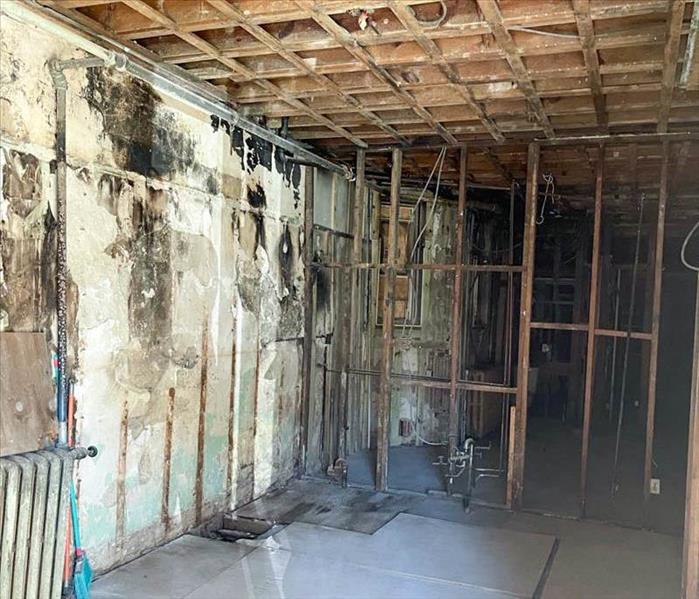Who is Responsible for Mold in My Rental Property?
11/8/2023 (Permalink)
 Landlords should ensure that the rental property is well-maintained to prevent conditions conducive to mold growth.
Landlords should ensure that the rental property is well-maintained to prevent conditions conducive to mold growth.
Maintaining a safe and comfortable living environment in rental properties is essential for tenants and landlords alike. One issue that can affect this balance is mold growth. In this blog, we will explore the responsibilities of both tenants and landlords concerning mold in rental properties. By understanding these roles, we can help ensure a harmonious and mold-free living experience for all.
Tenant Responsibilities
As a tenant in a New Jersey rental property, you play a vital role in maintaining a safe and mold-free living environment. Mold can be a persistent issue, but with the right practices, you can help ensure a comfortable and healthy space for yourself and fellow occupants. Here are some key tenant responsibilities to keep in mind:
- Routine Inspections: Tenants should conduct regular inspections of their rental units for signs of moisture or mold growth. Pay attention to areas like bathrooms, kitchens, and basements, which are more prone to dampness.
- Proper Ventilation: Ensure that the property is adequately ventilated. Use exhaust fans when cooking or showering, and keep windows open to promote air circulation, especially during humid weather.
- Prompt Reporting: If you notice any signs of mold, such as a musty odor or visible growth, report it to your landlord immediately. Timely reporting is crucial to address the issue promptly.
- Maintain Cleanliness: Keep the rental property clean and dry. Regular cleaning can prevent mold-friendly conditions from developing. Be especially diligent in areas susceptible to moisture, like the bathroom.
- Address Moisture Sources: If you identify leaks or water intrusion, inform your landlord promptly. Preventing water from entering the property is key to mold prevention.
Landlord Responsibilities
For landlords in New Jersey, providing a safe and comfortable living environment for tenants is not just good practice—it's a legal obligation. When it comes to mold issues, there are specific responsibilities that landlords must uphold to ensure tenant well-being and satisfaction. These responsibilities are not only essential for compliance with the law but also for fostering positive landlord-tenant relationships. Here are the key responsibilities that landlords in New Jersey must be aware of:
- Mold Disclosure: Landlords in New Jersey are legally required to disclose any known mold issues to prospective tenants. This should be part of the rental agreement or lease.
- Prompt Remediation: Landlords must take immediate action when mold is reported. This includes arranging for professional mold remediation services, such as those provided by SERVPRO®, to address the issue swiftly and effectively.
- Maintain Property: Landlords should ensure that the rental property is well-maintained to prevent conditions conducive to mold growth. This includes addressing any structural issues, such as leaks or damaged roofing.
- Proper Ventilation and Insulation: Landlords should install and maintain proper ventilation systems and insulation to minimize moisture buildup and temperature fluctuations within the property.
- Educate Tenants: It's beneficial for landlords to educate tenants about mold prevention measures and provide guidelines on how to maintain a mold-free environment.
In New Jersey, the responsibilities of tenants and landlords regarding mold in rental properties are well-defined. By understanding and fulfilling these responsibilities, we can create healthier and more comfortable living conditions for everyone involved. If you suspect mold in your rental property, contact SERVPRO® of Berlin/Williamstown for expert mold remediation services. We're here to help ensure that your rental property remains a safe and enjoyable place to call home.




 24/7 Emergency Service
24/7 Emergency Service